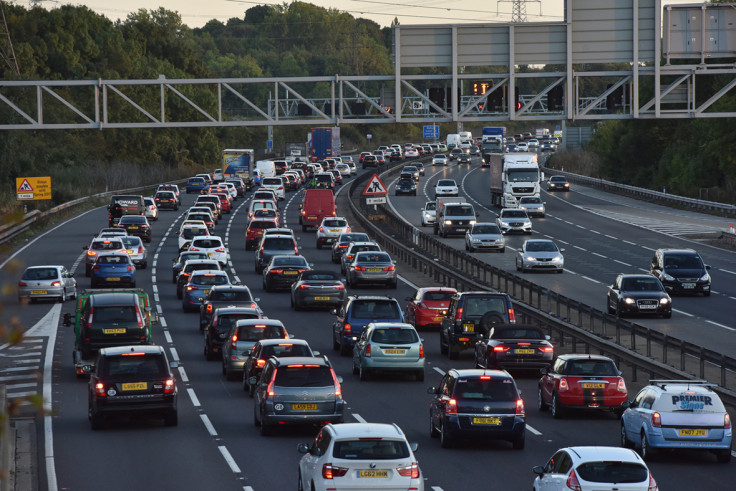Motorways could be transformed into giant 'tunnels' to trap deadly pollution from cars
Highways England looking at canopy initiative that could cover busy stretches of road.

As part of an initiative to reduce harmful air pollution, busy stretches of motorway in the UK could be covered with tunnel-like canopies to trap emissions from cars.
Highways England, which has been given a £100m government fund to find a solution to pollution, has produced a report that says it has "identified that a cantilever barrier or canopy, which is a tunnel-like structure designed to prevent vehicle emissions, might be a possible solution".
Air pollution is said to be the cause of 40,000 premature deaths a year in the UK, with many areas in the country exceeding European legal limits. In a bid to curb the deadly car emissions the initiative takes inspiration from a Dutch scheme that constructs canopies over sections of roads to soak up the noxious fumes before they reach nearby residents.
Highways England is working with the Dutch team and are looking at finding ways to reduce the cost of the canopy before the initiative can be considered for full trial. Where the potential canopies would be installed was not revealed.
Other attempts to contain air pollution have been trialled in the UK with one section of the M62 featuring 6 metre high wood panels, while another ongoing trial has seen barriers coated with a special mineral-enriched polymer that is able to absorb nitrogen oxide.
As well as quick, physical measures to improve air quality by 2021, Highways England is looking further down the road with the adoption of electric cars being the potential solution and has said it has a target to install a charging point every 20 miles on 95% of the road network.
With the UK planning to ban the sale of all new diesel and petrol cars by 2040 the need for a widespread charging infrastructure will be essential to cope and support the inevitable uptake of electric cars, particularly as the Department of Transport predicts traffic volumes are expected to increase by 55% between 2010 and 2040.
© Copyright IBTimes 2025. All rights reserved.






















